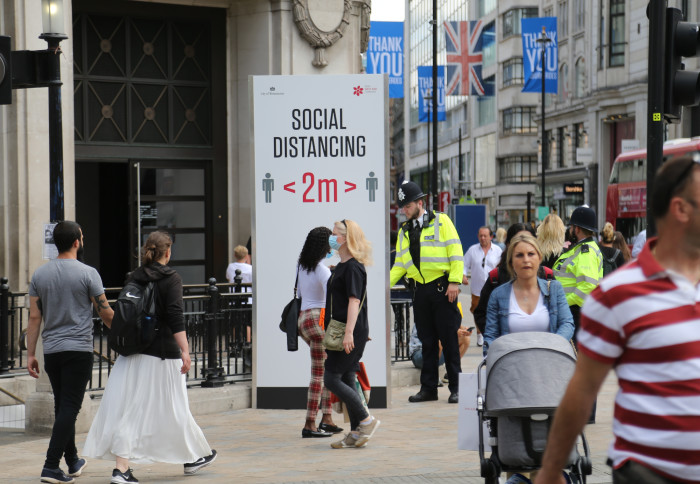Slow easing of restrictions may come at a high cost says a leading economist

A slow easing of Covid-19 restrictions may come at a high cost per year of life saved relative to yardsticks used in NHS resource decisions.
This was the conclusion of a new research paper, co-authored by David Miles, Professor of Financial Economics at Imperial College Business School. The research estimates the impact of some aspects of the tradeoff between slower and faster easing of restrictions in England.
How fast restrictions should be eased as vaccinations impact on the spread of Covid-19 is a critical policy issue according to the researchers. It should depend on how the risks of infections, hospitalisations and deaths are affected by easing restrictions. But assessing how many more people might be infected and suffer serious illness if restrictions are eased sooner rather than later, cannot be the only factor that is relevant to the Government’s policy decisions. The authors stress how the great benefits that severe restrictions bring is in reducing illness and deaths from the virus; but restrictions also bring large economic costs.
The costs and benefits of easing restrictions
The research assesses the costs and benefits of different strategies for easing restrictions together to inform the urgent policy question. It models the impact upon infection rates and deaths from different strategies for easing restrictions in England and sets those alongside an assessment of the economic and social costs of different strategies.
The researchers argue that a relatively slow easing of restrictions lasting six months or more seems likely to generate costs that are high relative to likely years of life being saved. That is judged by reference to the rules in place for decisions used in the NHS which put a maximum resource limit on treatments likely to create more years of life. With that yardstick, costs of slow easing could be more than 10 times the implied levels judged acceptable for NHS decisions.
The research shows that vaccinations are significantly reducing the number of hospitalisations and deaths, and in most cases favoured at least as fast a pace of easing of social restrictions than current Government plans seem to imply.
Alternative assumptions for key factors affecting the spread of the virus give significantly different trade-offs between costs and benefits of different speeds of easing. But in most cases the results favour a somewhat faster easing of restrictions in England than current policy implies, at least if one uses valuation metrics commonly used for other Government decisions, their analysis shows.
"The number of businesses that will shed employees will rise the longer severe restrictions are kept in place and the unemployment this will cause will do significant harm to those who lose their jobs and struggle to find new ones." David Miles Professor of Financial Economics, Business School
There are however, clear risks in easing restrictions. It may be that restrictions might need to be re-introduced. But to leave very tight restrictions in place simply to avoid ever having to tighten restrictions again would be a strategy that itself entails huge inherent risks, the authors argue.
Professor Miles, together with his co-authors Adrian Heald at the University of Manchester’s School of Medicine and Mike Stedman of the RES Consortium, said that the easing of social restrictions must balance multiple challenging priorities such as the risk of more deaths and hospitalisations against damage done to mental health, incomes and standards of living, education and provision of non-Covid care.
Professor David Miles said: “The research shows an obvious benefit to having severe restrictions as these reduce illness and deaths from the virus. However, these restrictions come at great cost in the long-term, for example, the disruption to education will negatively affect millions of young people for many years and the mental health and other distress that isolation brings for people forced to stay home is likely to be significant now and into the future. The number of businesses that will shed employees will rise the longer severe restrictions are kept in place and the unemployment this will cause will do significant harm to those who lose their jobs and struggle to find new ones.”
The paper, ‘How fast should social restrictions be eased in England as COVID-19 vaccinations are rolled out?’ is published online in the International Journal of Clinical Practice.
Article text (excluding photos or graphics) © Imperial College London.
Photos and graphics subject to third party copyright used with permission or © Imperial College London.
Reporter
Priscilla Owusu
Business School